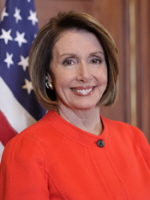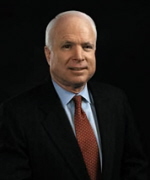Fun Facts about House Democrats Voting ‘No’ on the Health Care Bill
Years of service in U.S. House, district competitiveness, and district vote for McCain in ’08 shaped Democratic votes; percentage of uninsured constituents in district had no impact

A Smart Politics analysis of the 253 votes cast by Democrats Sunday night on the Patient Protection and Affordable Care Act finds that Democrats with fewer years of service in the U.S. House, those representing more competitive districts with smaller margins of victory in 2008, and those representing districts carried by John McCain were much more likely to vote against the bill.
1. Experience. Democrats voting for the bill who are running for public office in 2010 have served 50 percent longer in the House than those voting against it.
· The 34 Democrats who voted against the bill have averaged 8.5 years of service in the U.S. House, compared to 12.0 years for those who voted for the bill.
· After excluding from analysis the nine Democrats who are retiring from public office altogether after 2010, the average length of service for those voting against the bill was 8.0 years, with 12.0 years still the average length for those voting ‘yes.’
2. District Competitiveness. Democrats running for reelection in 2010 who voted against the bill represent districts that are 10 points more competitive than those who voted for the bill.
· The average margin of victory in 2008 of the 34 Democrats who opposed the measure was 36.7 points, compared to 45.3 points for those who cast their vote in support of the bill.
· Upon excluding from analysis those 15 Democrats who will not be running for reelection in their respective districts this November, the margin increases to 10 points: a 33.4-point average margin of victory for the Democrats voting against, and a 43.4-point average margin of victory for those in favor of the legislation.
· Of the 238 Democrats slated to run for reelection in 2010, the average district competitiveness rank for those voting against the bill was #152, compared to #241 for those voting in favor of it.

· Democrats representing ‘McCain districts’ voted 26 to 20 in opposition to the bill, or 56.5 percent against the measure. (Note: two additional McCain districts once held by Democrats, NY-29 and PA-12, are currently vacant).
· Democrats representing ‘Obama districts’ voted 199 to 8 in favor of the bill, or just 3.9 percent against the legislation.
One factor that seemingly had no relevance as to whether or not Democrats supported the measure was the percentage of constituents in a representative’s district who did not have health insurance.
· The average percentage of constituents who did not have health insurance of the 34 Democrats voting against the health care bill: 17.0 percent.
· The average percentage of constituents who did not have health insurance of the 219 Democrats voting for the bill: 17.2 percent.
Democrat Dan Boren (OK-02) represents the largest constituency of the uninsured among those 34 Democrats who voted against the measure at 29.3 percent, followed by Harry Teague (NM-02, 25.0 percent), Chet Edwards (TX-17, 23.2 percent), Mike McIntyre (NC-07, 23.1 percent), and Gene Taylor (MS-04, 22.3 percent).
Follow Smart Politics on Twitter.

A poignant analysis and one that would seem overlooked in the media coverage of the vote. Despite the president’s call to his own ranks “to be bold” and support the bill, most things political are about the triangulation between achieving meaningful outcomes and ensuring that the pilot light is burning strong enough to stay in office. Therefore one wonders-
…To what extent the Democrats privately reconciled that a number of “no” votes in its own membership will be necessary realities in order to consolidate…even fortify power in November.
…Whilst the legislation is not perfect and certainly compromised, it would also be interesting to know how many of the those voting “no” would have happily voted “yes” had there been less at risk by doing so.
…Finally, whilst a block Republican “no” vote was not a suprise, one wonders if any republicans were hesitant- even wavering- and what the disciplinary consequences would have been for voting “yes.”
Again this was a really good analysis.